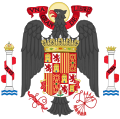
The Council of Ministers is the main collective decision-making body of the Government of Spain, and it is exclusively composed of the Prime Minister, the deputy prime ministers and the ministers. Junior or deputy ministers such as the Secretaries of State are not members of the Council. The Monarch may also chair the Council when needed on the invitation of the Prime Minister.
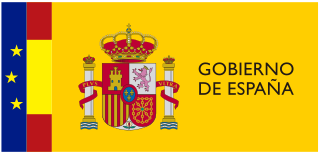
The government of Spain is the central government which leads the executive branch and the General State Administration of the Kingdom of Spain.

The Ministry of Foreign Affairs, European Union and Cooperation (MAEUEC) is a department of the Government of Spain in charge of planning, managing, carrying out and evaluating the country's foreign and international cooperation for development policies, paying special attention to the ones in relation to the European Union and Ibero-America, as well as coordinating and supervising all actions done in this areas by the other Ministries and Public Administrations. Likewise, it is responsible for promoting international economic, cultural and scientific relationships, taking part in the proposal and application of the migration policy, promoting cross-border and interterritorial cooperation, protecting Spaniards abroad and preparing, negotiating and processing the international treaties which Spain is part of.

The Ministry of Economy, Trade and Business (MINECO) is the department of the Government of Spain responsible for proposing and carrying out the government policy on economic affairs, through reforms to improve competitiveness and trade, focused on business support and the potential growth of the economy. At the same time, it directs the commercial policy of internationalization of companies, as well as the supervision of investments and foreign transactions.
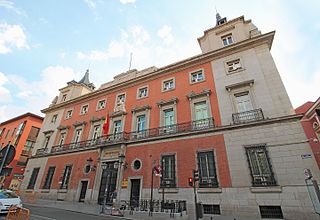
The Ministry of Justice (MJUS) was the department of the Government of Spain responsible for preparing and carrying out the government policy in order to bring the legal system off, specially in criminal, civil, commercial and procedural law affairs, supporting the Administration of Justice and the legal and international cooperation.

The Ministry of Defence (MINISDEF) is the department of the Government of Spain responsible for planning, developing and carrying out the general guidelines of the Government about the defence policy and the managing of the military administration. It is the administrative and executive body of the Spanish Armed Forces.

The Ministry of the Presidency (MPR) was the department of the Government of Spain that, from 1974 to 2023, assured the link between the different Ministries and the Prime Minister and it was responsible for the relations between the Government and the Parliament. This department also supported The Crown in the exercise of its functions.

The Ministry of Equality is a department of the Government of Spain responsible for the proposal and execution of the government's policy on equality, with a focus on making the equality between men and women real and effective as well as prevention and eradication of different forms of violence against women. The department's roles also include eradication of all kind of discrimination by sex, racial and ethnic origin, religion or ideology, sexual orientation, gender identity, age, disability or any other personal or social condition or circumstances. It existed from 2008 to 2010 when it merged with the Ministry of Health, and then from 2020.

The Spanish Agency for International Development Cooperation (AECID) is a Spanish autonomous agency responsible for the management of the Government international development cooperation policy.

The Ministry of Science, Innovation and Universities (MICIU) is the department of the Government of Spain responsible for developing and implementing the government policy on scientific research, technological development and innovation in all sectors. In particular, MICIU is responsible for the exercise of research, technological development and innovation competencies in space matters, including representation and participation in European Union and International organizations. It is also responsible for the university policy.

The Under-Secretary of the Presidency, officially Under-Secretary of the Presidency, Relations with the Cortes and Equality is the most senior civil servant of the Ministry of the Presidency of Spain.
The secretary of state for foreign and global affairs (SEAEX) is a senior minister of the Ministry of Foreign Affairs, European Union and Cooperation of the Government of Spain. Although he or she has the same rank as the other Secretaries of State of the Department, the SEAEX is considered the second-in-command to the Minister.
The Secretary of State for Global Spain (SEEG) was a senior minister of the Ministry of Foreign Affairs, European Union and Cooperation of the Kingdom of Spain. It was directly responsible of the strategic design of Spain's foreign policy and external action. This involved, among other things, defining the key strategic lines of action, boosting and coordinating Spain's economic and public diplomacy, defending and promoting the image and international reputation of the country, and being in charge of the Ministry's communications. All of this occurred with the support of the rest of the Ministry's bodies and institutions that were linked to it such as the network of Casas, the Fundaciones Consejo or other analogous entities.

The Spanish government departments, commonly known as Ministries, are the main bodies through which the Government of Spain exercise its executive authority. They are also the top level of the General State Administration. The ministerial departments and their organization are created by Royal Decree signed by the Monarch and the Prime Minister and all of them are headed by a Cabinet member called Minister.

The Institute for the Elderly and Social Services (IMSERSO) is an agency of the Government of Spain responsible for the management of social services that complement the benefits of the Social Security System, disability and retirement pensions, in its non-contributory modalities, as well as the exercise of the powers of the General State Administration in matters relating the elderly and dependent persons. The IMSERSO is categorized as a "Management Entity of the Social Security".

The Chair of RTVE, officially Chair of the Spanish Radio and Television Corporation, is the head of the RTVE Corporation and of the RTVE Board. The chair of RTVE is the chief executive of the corporation and chairs the Board, convene its meetings and execute its guidelines. The chair is appointed by the majority of the Congress of Deputies.
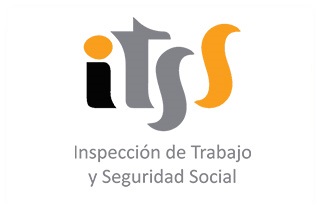
The Labour and Social Security Inspectorate (ITSS) is a Spanish autonomous agency in charge of the control of the compliance with labour and social security legislation. It also offers technical advice and, where appropriate, conciliation, mediation and arbitration in these matters. The ITSS is, therefore, the apex of the Labour and Social Security Inspection System.

In Spain, apart from the Central Administration, the central government has a Peripheral Administration. This administration is composed of all those decentralized government services, and they are coordinated by the Government Delegations, which are headquartered in the Spanish regions' capitals. Likewise, this delegations exercise its powers through sub-delegations, headquartered in the provinces and insular directorates, headquartered in some islands. In total, there are 19 government delegations, 44 sub-delegations and 7 insular directorates.
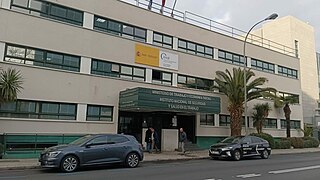
The National Institute for Safety and Health at Work is an autonomous agency of the Government of Spain. The INSST is considered a technical-scientific agency entrusted with the task of analyze and research on safety and health conditions at work, as well of promoting and supporting the improvement of them, in order to achieve a decrease in occupational hazards, work accidents and occupational diseases.

Félix Bolaños García is a Spanish lawyer and politician who serves as minister of the Presidency, Justice and Relations with the Cortes since 2023. Previously, he served as Secretary-General of the Office of the Prime Minister of Spain from 2018 to 2021, and as minister of the Presidency, Relations with the Cortes and Democratic Memory from 2021 to 2023.
